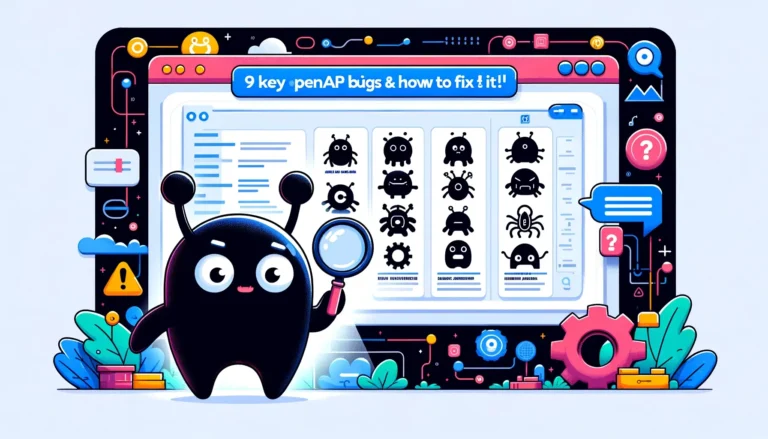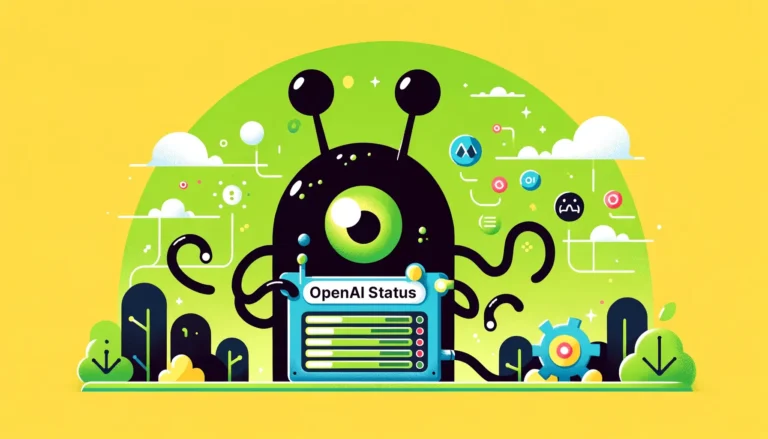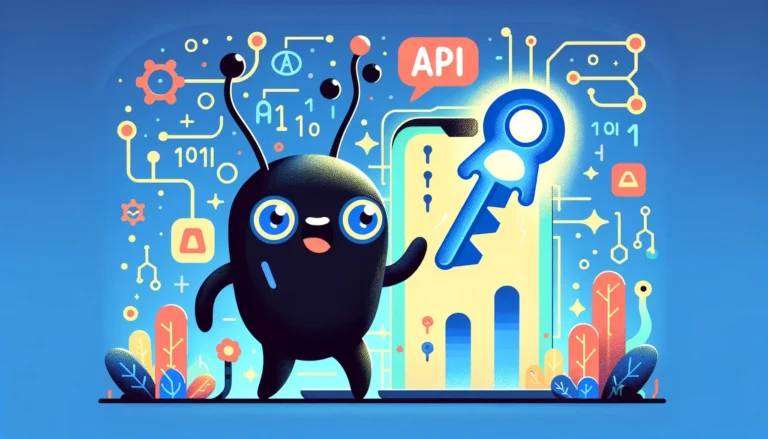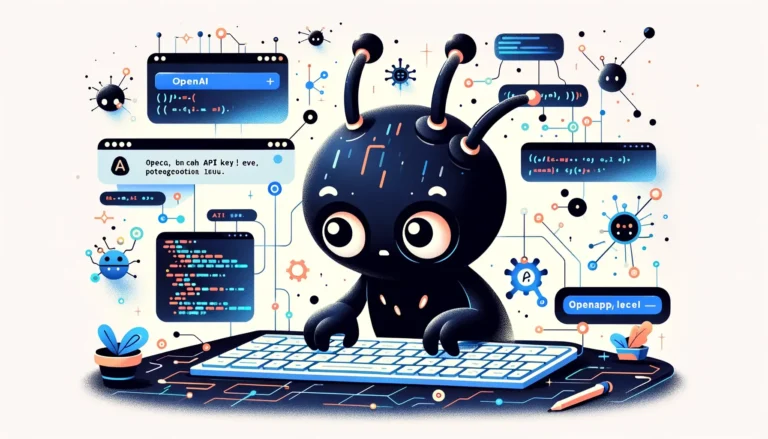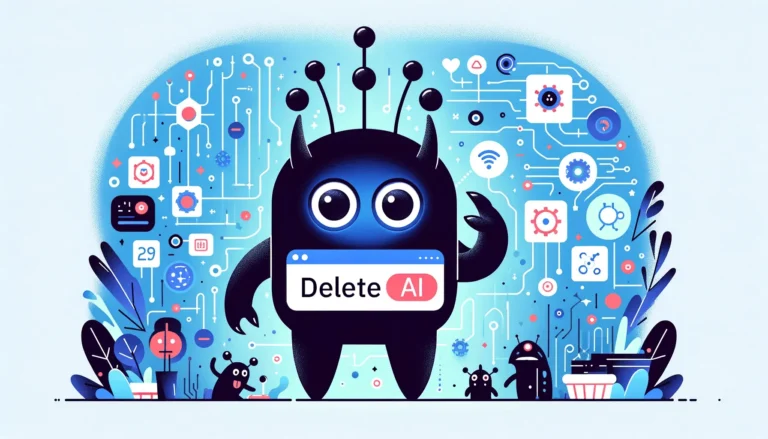OpenAI API stands for Application Programming Interface. It’s a key that allows you to integrate advanced AI models into your projects.
For example, if you’re developing a chatbot, the GPT-4 API can help your chatbot respond to natural conversations, providing your users with relevant answers.
How much does OpenAI API cost? I’ve updated the latest API pricing information March 2024. Here are a few more key takeaways:
- OpenAI API pricing now uses 1M tokens as the unit instead of 1K tokens for both input and output.
- gpt-4-32k is the most expensive model at $120 per 1M output tokens.
- Models gpt-4-0125-preview and gpt-4-1106 have the same pricing.
- Sora API pricing details are not yet available.
- $0.006 per minute is the fixed price for Whisper API.
- DALL·E API cost depends on 3 factors.
- 1M characters is the unit used for pricing the TTS API.
- OpenAI does not offer discounted pricing for Whisper and Embedding APIs.
Why use OpenAI API?
For AI users, OpenAI API is being used by many people around the world for applications. OpenAI’s CEO wrote a twitter post to express his joy at the development of the API.
Incredible to see the energy and creativity of people building on the openai api around the world.
Very motivating to work harder!
Sam Altman on X(Twitter)
So, I think you should take advantage of this technology to keep up with the trend. Yes.
When using OpenAI API, you will do many things, apply it to many projects and save time and costs.
- Easy integration for all skill levels
- Improve satisfaction with 24/7 AI-powered support
- Automate tasks and workflows to save time and money
- Create new products and services give you a competitive edge
- Optimize your operations and make better decisions
For example, when I integrated the GPT API into Google Sheets, I saved about 36% of the processing time when checking content articles. It’s part of my daily task with about 40 to 50 rows that need be checked.
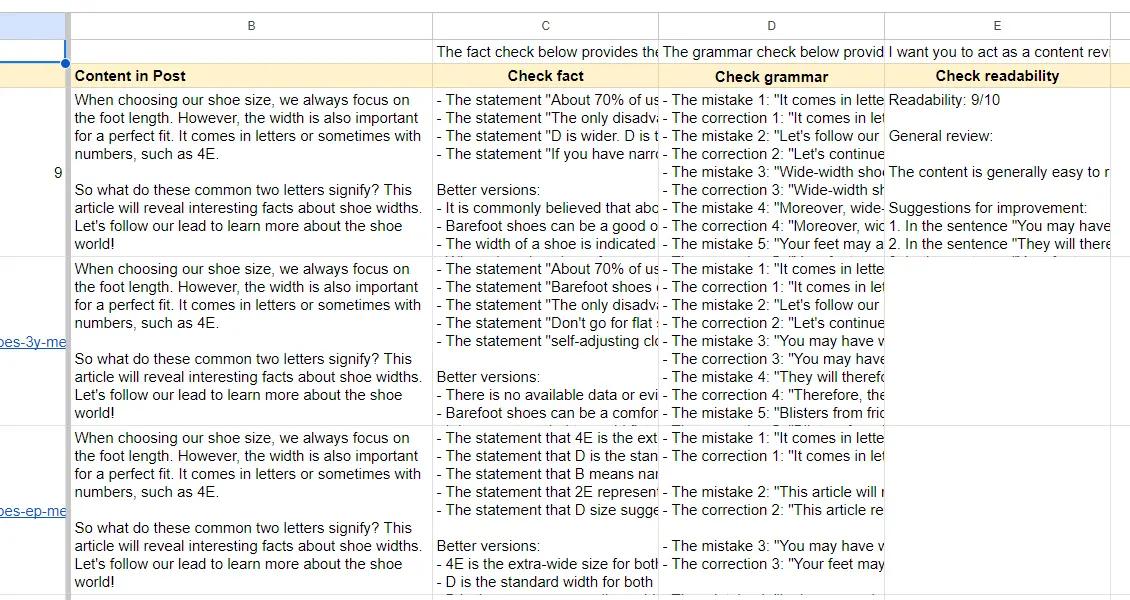
OpenAI API pricing
OpenAI has a flexible and custom pricing to suit many needs and budgets. Prices are determined by how much you use the API. If you plan to use it a lot, you can contact them to discuss getting a discount.
GPT API
The pricing of the GPT API is calculated based on token units like 1K or 1M tokens (input and output), and the type of GPT model you choose. Additionally, pricing may be calculated based on the type of query.
For example, the sentence “GPT API is being used by many people worldwide in 2024”. This sentence is 11 tokens.
The table below shows the cost per 1 million tokens (1M tokens) for both the input and output of each model.
| Model | Input price / 1M tokens | Output price / 1M tokens |
|---|---|---|
| gpt-4-0125-preview | $10.00 | $30.00 |
| gpt-4-1106-preview | $10.00 | $30.00 |
| gpt-4-1106-vision-preview | $10.00 | $30.00 |
| gpt-4 | $30.00 | $60.00 |
| gpt-4-32k | $60.00 | $120.00 |
| gpt-3.5-turbo | $3.00 | $6.00 |
| gpt-3.5-turbo-0125 | $0.50 | $1.50 |
| gpt-3.5-turbo-1106 | $1.00 | $2.00 |
| gpt-3.5-turbo-0613 | $1.50 | $2.00 |
| gpt-3.5-turbo-16k-0613 | $3.00 | $4.00 |
| gpt-3.5-turbo-0301 | $1.50 | $2.00 |
| gpt-3.5-turbo-instruct | $1.50 | $2.00 |
OpenAI has updated the pricing unit from 1K tokens to 1M tokens.
With 128k context, the latest GPT-4 Turbo model has training data up to Dec 2023 more powerful than GPT-4 and offered at $10 per 1M tokens input and $30 per 1M tokens output.
Calculate GPT price
To check the price of more GPT models, you can use the OpenAI API pricing calculator to estimate the cost of using API.
DALL·E API
From creating unique illustrations to generating product mockups, DALL·E lets you turn ideas into stunning visuals. Pricing for DALL·E API depends on three factors including quality, resolution, and the number of images generated.
DALL·E 3 is image high quality, and DALL·E 2 focuses on low costs.
| Model | Quality | Resolution | Price / image |
|---|---|---|---|
| DALL·E 3 | Standard | 1024×1024 | $0.040 |
| DALL·E 3 | Standard | 1024×1792, 1792×1024 | $0.080 |
| DALL·E 3 | HD | 1024×1024 | $0.080 |
| DALL·E 3 | HD | 1024×1792, 1792×1024 | $0.120 |
| DALL·E 2 | 1024×1024 | $0.020 | |
| DALL·E 2 | 512×512 | $0.018 | |
| DALL·E 2 | 256×256 | $0.016 |
What is the difference between the Standard and HD?
Standard
- Generates images quickly
- Less expensive option due to faster processing
HD
- Takes more time and resources to generate
- More expensive due required for higher quality images
Whisper API
Whisper can transcribe audio, generating captions, creating transcripts for meetings or lectures, or powering voice-enabled applications. The cost is based on the audio duration you convert, with a rate of $0.006 per minute.
To give you a better idea of pricing, here are some example costs for typical audio durations:
- Short clip (1-3 minutes): $0.006 – $0.018 (e.g., voicemail, short interview snippet)
- Podcast episode (30 minutes): $0.18 (around the cost of a cup of coffee!)
- Lecture (1 hour): $0.36
| Model | Price / minute |
|---|---|
| Whisper | $0.006 (rounded to the nearest second) |
SIDENOTE: OpenAI does not offer discounted pricing for the Whisper model.
TTS API
Pricing is based on the number of characters converted to speech (measured in 1M of characters).
For example, if you want to convert 1 million characters by using API of TTS HD model, you will pay $30.00.
| Model | Quality | Price / 1M characters |
|---|---|---|
| TTS | Standard | $15.00 |
| TTS | HD | $30.00 |
Standard models are cheaper but may have lower quality.
Embedding API
Cost depends on the number of tokens used to generate embeddings (measured in 1M of tokens).
| Model | Usage / 1M tokens |
|---|---|
| text-embedding-3-small | $0.02 |
| text-embedding-3-large | $0.13 |
| ada v2 | $0.10 |
SIDENOTE: OpenAI does not offer discounted pricing for the Embedding API.
Sora API
Pricing information is not yet available but OpenAI Sora will be updated in the future.
OpenAI API usage limits
Do you care about using OpenAI’s API without cost? This guide I will explain OpenAI’s usage limits and pricing tiers so you can find the perfect fit for your project.
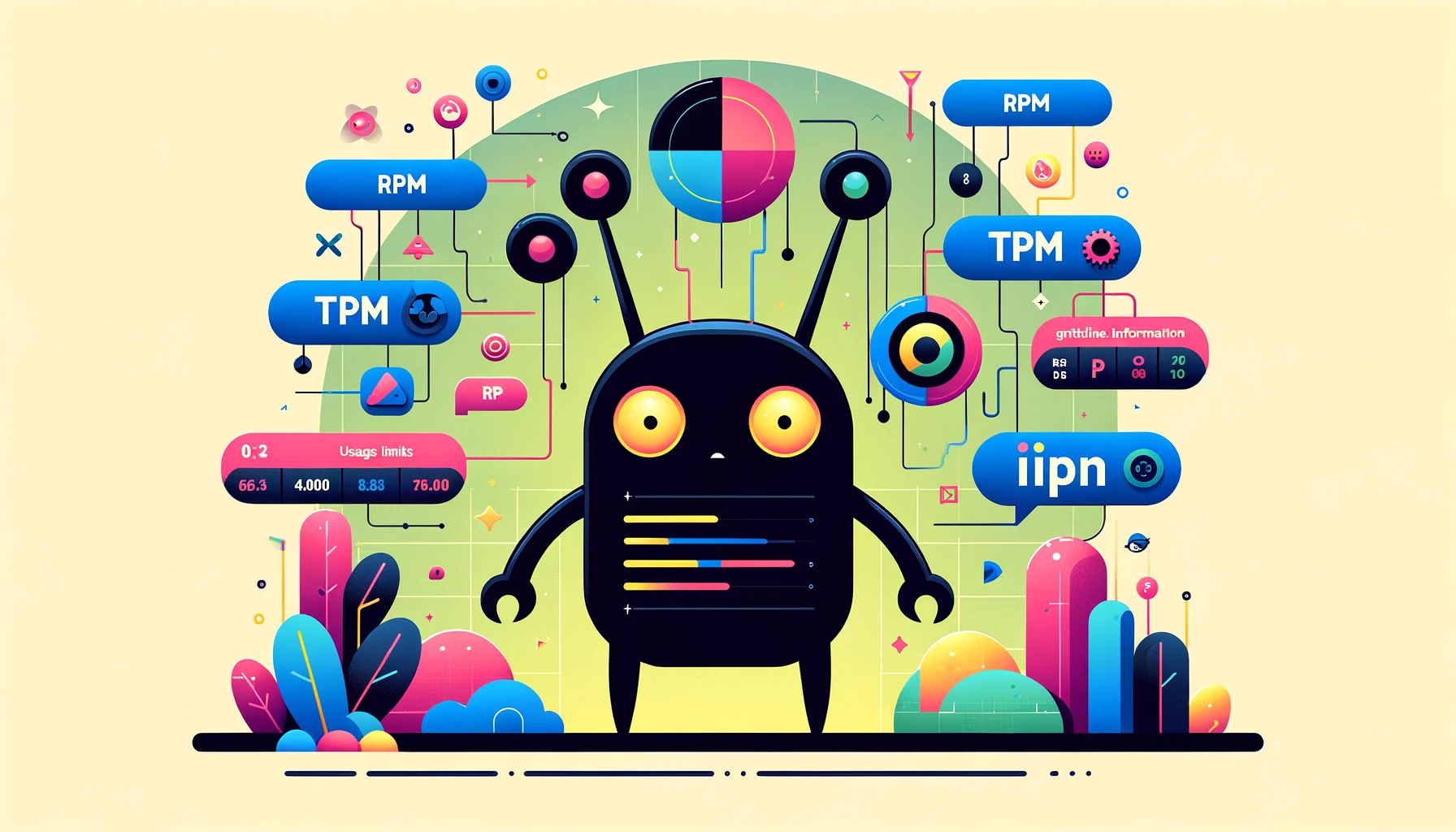
OpenAI allows a certain amount of free API use. Usage limits are there to make sure everyone gets a fair chance to use the service and prevent the API from overloading.
OpenAI uses “tokens” to measure how much you use API and charges you based on the total number of tokens used in your API request (both the input you send and the output you receive).
Tokens can be individual words, punctuation marks, or even special characters.
Remember
- Lower token usage = Lower cost
- Higher token usage = Higher cost
Why are usage limits important?
OpenAI sets usage limits for a few key reasons:
- Prevent misuse: To protect the API from harmful or overly frequent use.
- Ensure fairness: So that everyone has an equal chance to access the service.
- Manage server load: To keep the system running smoothly and reliably.
How does usage limits work?
OpenAI uses various metrics to track API usage. Understanding these metrics helps you manage your usage effectively and choose the right pricing tier. Here’s a table of some common ones:
| Metric | Explained | Impact |
|---|---|---|
| Requests per Minute (RPM) | Number of API calls allowed per minute. | Impacts speed of processing multiple requests simultaneously. |
| Requests per Day (RPD) | Total number of API calls allowed per day (24 hours). | Crucial for projects with consistent daily usage. |
| Tokens per Minute (TPM) | Total number of tokens allowed per minute for API requests. | Important for tasks involving large amounts of text or complex functionalities. |
| Tokens per Day (TPD) | Total number of tokens allowed per day (24 hours). | Relevant for projects with substantial daily usage of OpenAI functionalities. |
| Images per Minute (IPM) | Number of image generation requests allowed per minute. | Only applies to image generation functionalities. |
Usage free tier
The free tier is your perfect starting point to explore the power of OpenAI API. With access to advanced models like GPT-3.5 and Text-Embedding, you can:
- Small units for tasks like text generation and code completion.
- Explore potential uses for project.
- Effectively plan with limits on requests and tokens.
Usage paid tiers
As your projects grow, so do needs. OpenAI offers paid tiers from tier 1 through 5.
| Tier | Usage limits / month | Used for | Examples |
|---|---|---|---|
| Tier 1 | $100 | Ideal for initial exploration and personal projects. | – Experimenting with more complex text formats (scripts, musical pieces). – Building basic chatbots or assistants. |
| Tier 2 | $500 | Suitable for startups and small businesses. | – Content generation at scale (articles, marketing copy). – Data analysis and summarization. |
| Tier 3 | $1,000 | Designed for growing businesses and larger projects. | – Building intelligent applications. – Large-scale content creation and translation. |
| Tier 4 | $5,000 | Cater to large enterprises and high-volume applications. | – Custom AI models and research projects. – Real-time applications and large-scale data pipelines. |
| Tier 5 | $10,000 | Same as the tier 4 | Same as the tier 4 |
To choose the right tier, you should:
- Consider the complexity of your project and the daily/hourly usage patterns.
- Estimate average token consumption per request.
- Start with a lower tier and upgrade as needs grow.
By following this information, I hope you can choose the most cost-effective plan for your needs.
How to pay for OpenAI API
Starting March 8, 2024, OpenAI has updated its payment system for the OpenAI API services. Instead of the traditional postpaid billing at the end of each month, you will now need to pre-purchase credits to use the API.
So, make sure to add credits to your account by visiting the OpenAI billing page to ensure uninterrupted service. And the change does not affect ChatGPT Plus or Team subscriptions.
To pay for OpenAI API services, follow these methods:
Prepaid billing system
- Prepaid credits: Log into your OpenAI account, go to Settings, and click on the Billing section.
- Payment method: Select Add a payment method to enter your debit or credit card details.
- Buy credits: Purchase the desired amount of credits (with a $5 minimum).
- Credit validity: Credits now expire after 1 year and are non-refundable.
- Top-up: If you run out of credits, you can buy more to continue using the API.
SIDENOTE: OpenAI accepts various payment methods including debit cards and credit cards (Visa, Mastercard, American Express).
Contacting sales for custom plans
To reach out to the OpenAI sales team for payment or other inquiries, you need to fill out a contact form with essential information. Here’s how to do it:
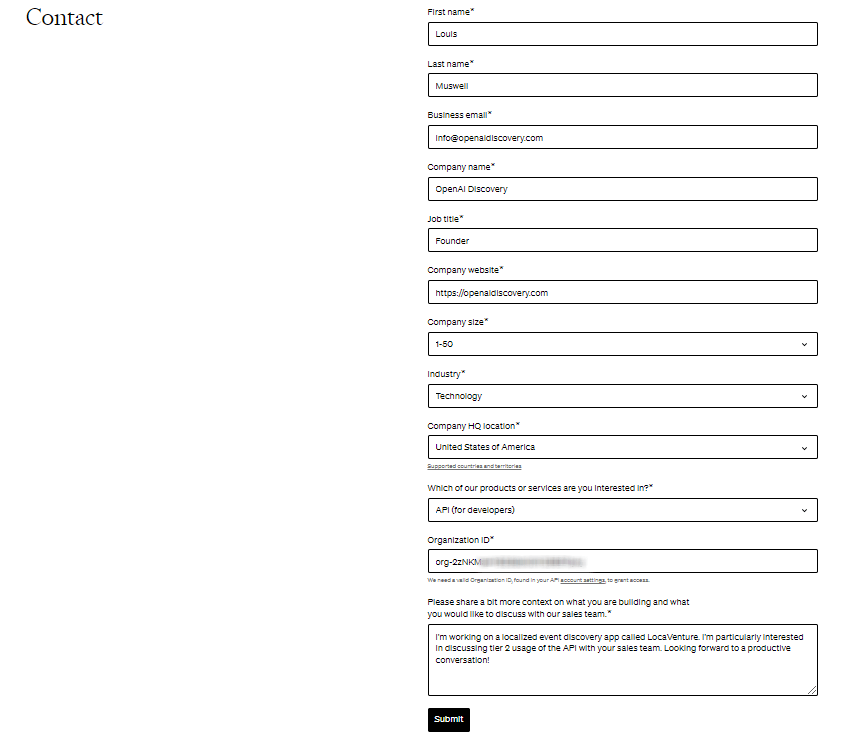
SIDENOTE: You must have an OpenAI account to obtain your Organization ID, which is required for the form.
- For solutions: If your project requires a custom plan or you have specific billing inquiries, contacting the OpenAI sales team is recommended.
- Finding ID: Log into your OpenAI account, go to Settings, then Organization to find your Organization ID.
For example, my Organization ID is: org-2zNKMa4YBZxxxxxxxxxxxxxx.
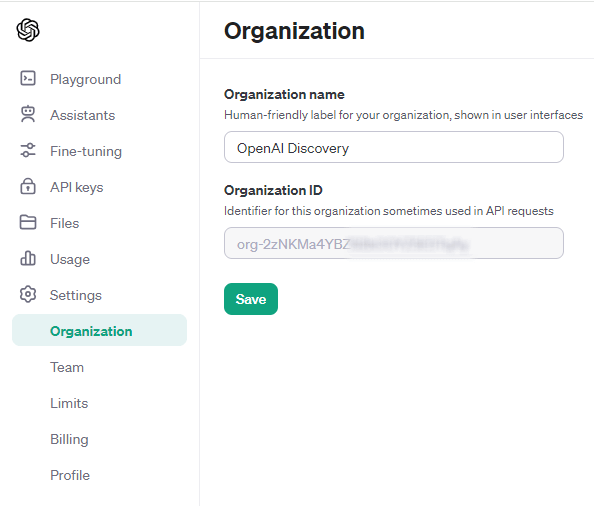
- Filling contact form: Complete the contact form on the OpenAI website with your Organization ID and other required details.
- Awaiting response: After submission, the sales team will reach out to you via email to discuss your needs and payment options.
By choosing the most suitable payment method, you can manage your OpenAI API usage, ensuring it aligns with your project’s scale and budget.
Final thoughts
I hope that this latest pricing will help you make a quick decision to integrate advanced AI into your projects and businesses. With flexible, customized pricing and a wide range of models, it can meet your needs.
If you’re looking for a way to boost your business with AI, the OpenAI API is a great option.
FAQs
How much does ChatGPT API cost?
The ChatGPT API costs depend on models and usage.
- For GPT-3.5, $1,5 per 1M input tokens and $2 per 1M output tokens for 4k context tokens. For 16k context, $3 per 1M input tokens and $4 per 1M output tokens.
- For GPT-4, $30 per 1M input tokens and $60 per 1M output tokens for 8k context tokens. For 32k context, $60 per 1M input tokens and $120 per 1M output tokens.
These are API usage costs, separate from the ChatGPT Plus subscription at $20 per month per user.
Is OpenAI API free?
OpenAI API offers a trial period with free $5 credits for new users, valid for three months. You can use and test the API without any upfront cost. However, once you’ve used up these free credits or the trial period ends, you’ll need to start paying.
Why is OpenAI API expensive?
OpenAI’s API is expensive mainly because it uses advanced technology models like GPT-4 or DALL·E, requires a lot of computing resources, needs ongoing research and development, delivers high-quality performance, and requires maintenance and support.
References
- Pricing. OpenAI. Retrieved from https://openai.com/pricing
- ChatGPT. OpenAI. Retrieved from https://openai.com/chatgpt
- ChatGPT Pricing. OpenAI. Retrieved from https://openai.com/chatgpt/pricing
- Introducing ChatGPT Enterprise. OpenAI. Retrieved from https://openai.com/blog/introducing-chatgpt-enterprise
- Moving AI governance forward. OpenAI. Retrieved from https://openai.com/blog/moving-ai-governance-forward
- Models. OpenAI. Retrieved from https://platform.openai.com/docs/models
- Rate limits. OpenAI. Retrieved from https://platform.openai.com/docs/guides/rate-limits
- Models API. OpenAI. Retrieved from https://platform.openai.com/docs/models/gpt-4-and-gpt-4-turbo
- What is prepaid billing? OpenAI. Retrieved from https://help.openai.com/en/articles/8264644-what-is-prepaid-billing
- Nolan Makatche on X. X
(Twitter). Retrieved from https://twitter.com/NolanMakatche/status/1764782346132144540/

